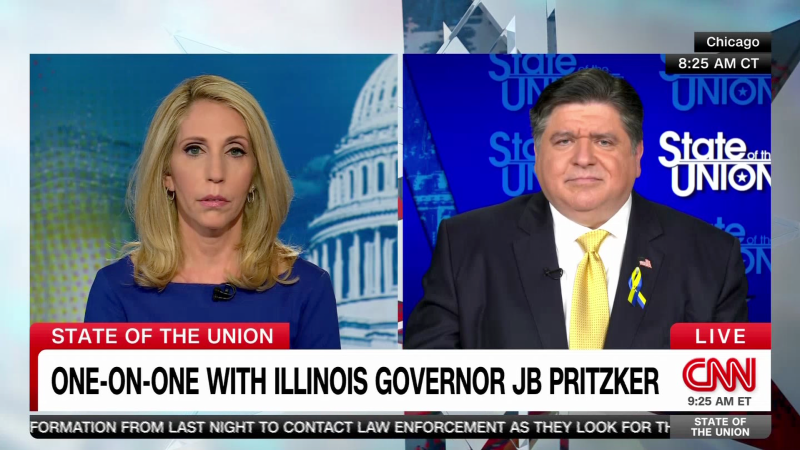In a recent interview with CNN’s Dana Bash, Democratic Governor JB Pritzker addressed the potential impact of RFK Jr qualifying for the ballot in Michigan on the presidential race. Pritzker expressed his belief that RFK Jr’s presence on the ballot would have “little effect on the ultimate result.” This statement reflects Pritzker’s confidence in the strength of the Democratic party’s performance in Michigan, suggesting that the addition of another candidate will not significantly alter the outcome of the race. Pritzker’s assessment indicates a certain level of dismissiveness towards RFK Jr’s candidacy, implying that his presence will not pose a significant challenge to the Democratic party’s prospects in the state.
Despite Pritzker’s assertion that RFK Jr’s candidacy will have minimal impact on the presidential race in Michigan, the presence of an additional candidate on the ballot could potentially influence the dynamics of the election. RFK Jr’s entry into the race as a third-party candidate could potentially siphon votes away from the major party candidates, thereby affecting the overall distribution of votes in the state. This scenario raises questions about the potential impact of third-party and independent candidates on the electoral process, as their presence can introduce additional variables and uncertainties into the race. While Pritzker may downplay the significance of RFK Jr’s candidacy, the potential for his presence to affect the outcome of the election remains a factor to consider.
The issue of third-party and independent candidates in presidential elections has been a longstanding topic of debate in American politics. The presence of additional candidates on the ballot can complicate the electoral landscape, creating scenarios where votes are divided among multiple contenders and potentially altering the outcome of the election. This dynamic underscores the importance of understanding the role of third-party and independent candidates in the political process, as their presence can have implications for the distribution of votes and the overall outcome of the race. Pritzker’s comments on RFK Jr’s candidacy reflect a perspective that seeks to minimize the potential impact of third-party candidates on the electoral process.
Pritzker’s dismissal of RFK Jr’s candidacy as having “little effect” on the presidential race in Michigan highlights the confidence that Democratic leaders have in their party’s ability to secure victory in the upcoming election. Despite the presence of additional candidates on the ballot, Pritzker’s comments suggest a belief that the Democratic party’s performance in Michigan will not be significantly affected by the presence of third-party contenders. This perspective reflects a strategic outlook that seeks to maintain focus on the party’s core message and platform, rather than allowing external factors to disrupt their electoral strategy. Pritzker’s assessment of RFK Jr’s candidacy reveals a mindset that prioritizes the party’s internal dynamics and overall strategy in the lead-up to the election.
Ultimately, the implications of RFK Jr’s candidacy in Michigan will become clearer as the presidential race progresses and the impact of third-party and independent candidates becomes more apparent. While Pritzker may believe that RFK Jr’s presence will have minimal effect on the final outcome, the reality of the situation remains uncertain until the votes are counted. The dynamics of the electoral process are complex and multifaceted, with various factors influencing the decisions of voters and shaping the overall outcome of the race. As the election unfolds, the role of third-party candidates like RFK Jr will be a topic of ongoing interest and speculation, as their presence has the potential to introduce new variables into the electoral equation. In this context, Pritzker’s comments serve as a reflection of the Democratic party’s strategic outlook and approach to navigating the complexities of the electoral landscape.


